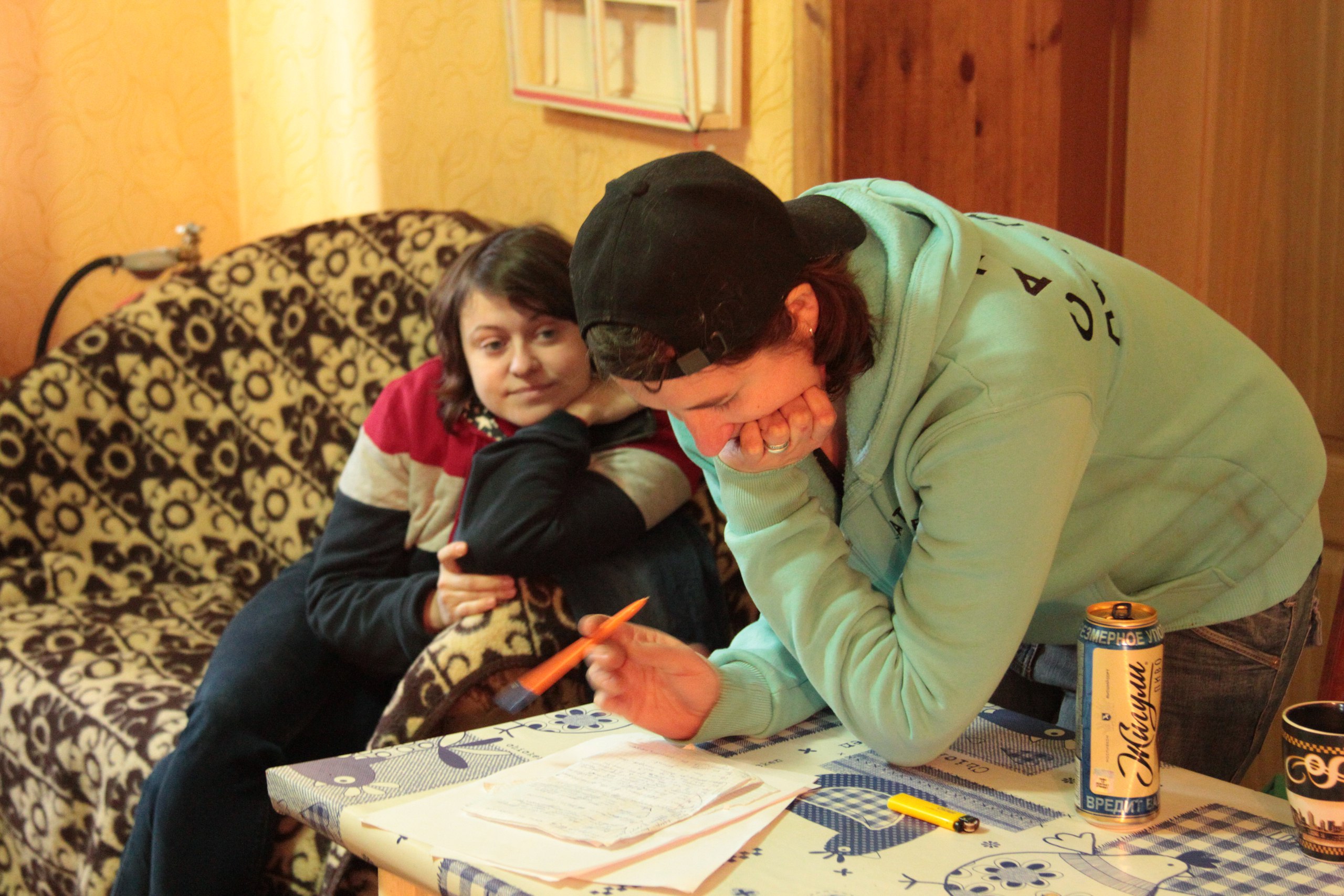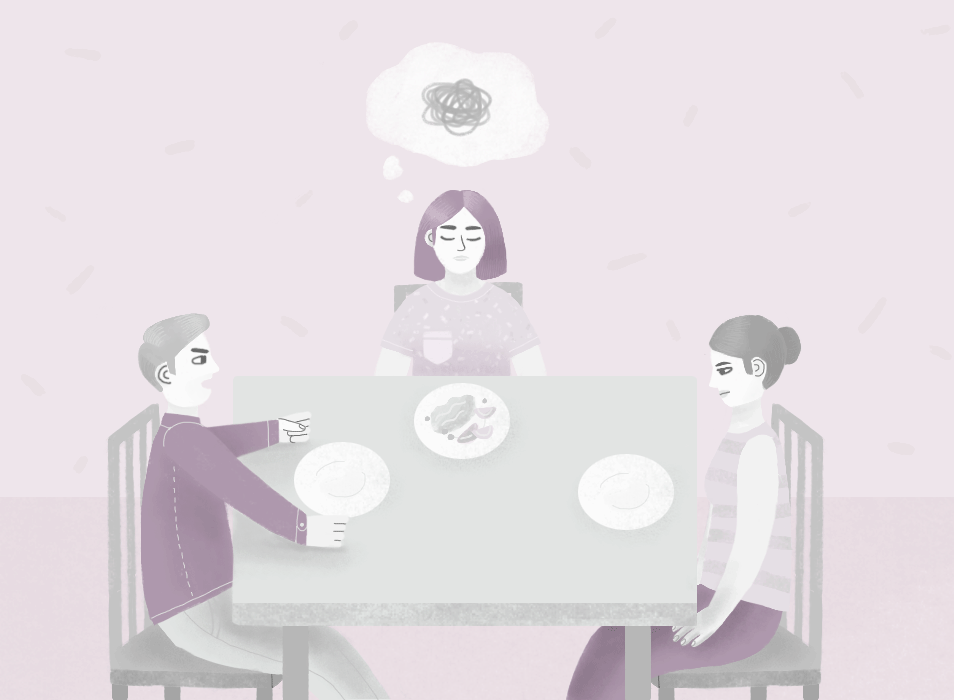When people speak of a romantic union, they call it a couple or a family, the latter also implying two partners. We rarely stop to think that it can be anything other than that. Polyamorous people are as good as invisible in today’s world.
Polyamorous relationships are hard to reduce to a universal description. They can take many forms depending on specific arrangements and what the partners mutually agree on. The only common feature for such partnerships is that they comprise of more than two participants. This does not mean that all partners live together, know each other, have equal desire or feelings towards all the others. One option is that several people who know each other participate in the relationship on equal terms. It may also be that two polyamorous people consider themselves each other’s main partners but also have other contacts. Polyamorous relationships are infinitely various.
Non-monogamy is not the same as polyamory. Polyamory as well as polygamy are but forms of non-monogamy. Polygamy is different from polyamory because it is linked to the institution of marriage, has to do with religious tradition, and stems from gender inequality. (Female polygamy only occurs in matriarchal tribes, male polygamy in countries where women’s rights are not acknowledged. It is important to note that the latter option is far more common.) Polyamory is more egalitarian, equal: there is no person who has the privilege to choose several partners, while the partners have no such right and cannot opt for monogamy. Furthermore, polyamory is not supported at the state level and is not rooted in religious rules.
What Do Polyamorous People Understand under Nonpaired Relationships?

Anna
I myself started from the contrary: I thought I had to commit to one single person and there could be nothing else for me, one union and one relationship. Maybe it had something to do with the fact that I was religious back then. Maybe my idealism played a role.
I waited to see a person one day who’d have an enormous neon sign saying The One above her head, and then I’d know for sure that I should hold her hand and spend the rest of my life with her.
The waiting prevented me from enjoying the present, which led to frustration. At that time I started actively using foreign information resources where people of diverse identities shared their experiences and talked about their lives. I remember one polyamorous artist from Germany who talked a lot about herself and her two long standing partners, and it sounded very touching and cozy. You could see all three of them trusted each other.
There were a lot of interviews, blogs, and articles by polyamorous people, which helped me overcome certain shame and stop seeing monogamy as the only acceptable option for a relationship. Learning and acceptance were empirical. Only when I started entering such relationships and realized the sky wasn’t going to collapse on top of my head immediately, did I calm down.

Katerina
Polyamory to me is about wanting to find a person who can trust me even if we have other relationships. Polyamorous relationships allow us to know each other better, to see your partner in a light you’ll never see them in if you’re monogamous. I’m not sure I’ve settled on this but at the current stage in my life I’d like to have another non-monogamous experience. I was never influenced by the idea of monogamy, I don’t feel shame for not being able to opt for it. I wouldn’t even compare non-monogamous and monogamous relationships because the two models are too different. For me, a polyamorous relationship is people coming to each other free and staying free, it’s a sort of “contract” about mutually respecting our freedoms.
The diversity of polyamorous relationships is infinite, and every relationship is a unique agreement of all partners. Everything depends on what those people want.
The most important thing for me is trust and I’ll consider any form of relationship where trust is present.

Vera
To me, monogamy is a kind of period when two people only have a love relationship with each other. And non-monogamy is the freedom to build relationships without limiting them to two people. Around two years ago I realized I definitely didn’t adhere to monogamy and never wanted to adhere to it. I kept my ideas to myself until my partner and I talked. It turned out she didn’t want to be monogamous anymore either. Accepting myself was easy, I felt very relieved, because you stop lying to yourself, first of all, and to the people in your life. What was difficult was to understand what the rules actually were, how I should proceed when I met someone, how I should come out and explain what my status was and with what people I was together at the moment.

Chingiz
I had a best friend, L., we had been friends for around ten years, since elementary school. When I was fifteen, she met V. Then I met him too. The three of us ended up having a very close friendship, we would actually compare our relationship to a single organism where everything was in harmony. Then V. and L. started a relationship. I understood deep in my heart that I wouldn’t object to introducing something romantic, erotic in my friendship with L. There were moments when the three of us would sit or lie cuddling, and V. held L., his girlfriend, and me, in exactly the same way. We had quite close physical contacts.
The only one who tried talking about something that sounded somewhat like today’s polyamory concept, was V., but when L. realized what he was talking about, she got disastrously angry: she couldn’t accept it because she was heterosexual and jealous. V. tried to talk of some kind of commune where three people would form this sort of single organism and it needn’t be about having sex together, it’d rather be about the deep, spiritual things. But at the age of fifteen, many topics were even taboo for myself. I mean, my attraction towards the people of my own gender was secret for everyone and unacceptable even within myself. We had no access to knowledge back then, we didn’t even talk about feminism, so when V. presented the concept of a polyamorous relationship, it seemed forbidden, sinful, perverse.
On the Possibility of Long Term Partnerships
Anna: I’m convinced that any relationship only qualifies as a long-term partnership if it’s a healthy relationship and no participant is traumatized. That’s harder by far to achieve in unions with more than two members, but not impossible. There is a high chance that family and acquaintances simply won’t regard such relationships seriously or will accuse you of being promiscuous. Personally, I don’t consider it necessary to let my family in on my love life.
Katerina: My main rule is not to hurt anybody. I’m not against living as a family, I’ve considered living with two, three, four partners, and I think I would be up for it. But it’s very difficult to implement. I don’t believe relationships can be what you imagine them to be anyway. They’ll always diverge from your plans.
People come to open relationships for different reasons. Some want more attention, more love, and realize they’ll get more from more partners. But if it’s a way to boost one’s self-worth, if one doesn’t understand they are not the center of the relationship but its equal part, they may end up acting quite cruelly.
To enter a nonpaired relationship and not get hurt, one needs to be very self-confident.
If a person is independent and knows their worth, they won’t react to their partner having other contacts with “he doesn’t need me” or “she doesn’t appreciate me”. You probably have to be rather selfish to be able to afford it. I’m only hurt when the central partner talks about another person whom they can talk to about things they can’t discuss with me. What I care about in open relationships is the sacral component.
Vera: I don’t support the institution of marriage, there is too little benefit to such a union and too little support from the state, so I don’t see the point of advocating for polyamorous relationships. I’ve got a child in my most stable and long relationship, my partner’s son. When we started living together, my partner talked to him about our relationship, she said she loved me and was happy that we were going to live together. The child was interested and accepted it as he could at the time, being three years old. When my partner started seeing another woman too, he was nine already, and they had another talk, and she explained to him that it could happen this way too. Now when my partner spends time with the other one, the child is with them too. He likes it because there is a dog and a bike :)).

What’s Most Important to Agree Upon from the Start, What Difficulties One Should Prepare For
Anna: I’m primarily interested in sex, which in some sense makes it easier to dot the i’s. The rules are neither set nor discussed. My partners simply know about each other’s existence, they make jokes about it. They all belong to different circles so they don’t bump into one another. I, on my part, am okay with the partners they have apart from me.
The only thing I care about is knowing that I matter to my partner.
This is why I prefer not to know the details of my partners’ relationships with other people. I think it has to do with my lingering remnants of complexes and lack of self-confidence.
Katerina: My partner and I called it an open relationship. This meant we were central partners for each other and had an arrangement about other romantic contacts. Our mistake was that we didn’t discuss the rules beforehand, we made them up as we went. Now I think you mustn’t engage in an open relationship straight away. First you should spend some time in a monogamous form to get to know each other well enough and understand each other’s needs. Should we tell each other about every instance of flirting? Or only about kisses? Or sex? Should we do it right away or after some time? The lack of coordination produced chaos.
Some people want to know everything that concerns their partners’ connections, but most, I think, only want to know about serious relationships. And what you need to understand is that even if you have very elaborate rules, you’ll encounter situations you haven’t anticipated. Cheating is not polyamory. If you partner doesn’t know about your other relationships, if you haven’t made arrangements about that, you cannot call it an open relationship.
Vera: I don’t look for partners intentionally, I’m open to those who are interested in me or who I’m interested in. And if there is mutual liking, I say I’m polyamorous and how many partners I have at the moment. Before starting a relationship, it’s important to agree to be honest, open, and to trust each other. You need to discuss any ideas and desires with any person as long as they concern that person. The biggest problem is the lack of time if you have several relationships simultaneously. And if at least one of them is long-distance, there is too little time for physical interaction but too much time for lingering on “yearning”, “doubt”, “sadness”... Therefore, making arrangements may not protect the relationship.
An Opinion of a Monogamous Person Who Has Been in a Nonpaired Relationship

Darya
I don’t think polyamorous relationships are bad in themselves but my experience has been negative. It seems to me that people who find themselves in polyamorous relationships are not always polyamorous themselves and I would like to share my story so that monogamous people aren’t subjected to pressure and blackmail. In my case, my partner didn’t say she was polyamorous straight away, which should have already been a red flag. After around two months she told me she had a second partner (and I’m not sure she told him about me, as she didn’t parade her relationships with women). She didn’t ask me how she could ensure I was comfortable with it, which meant I could either leave or put up with the rules she set for me. The fact that a polyamorous relationship required a lot of work and attention was never acknowledged. I wasn’t told that the second partner was more important than me but it was implied, because a date with me could be cancelled, postponed, or interrupted immediately if the second partner called her and suggested they met. She said she was open to talk and even prepared to change something to make me feel more comfortable but those were empty words. Even the simplest request to reply to my messages if she read them, or not to read them at all while she was busy and couldn’t reply was ignored. My peace of mind, my need for respect and attention did not matter, and I felt bad for wanting it at all, I felt as if I were too needy and had too much emotion for a “normal person”.
She often said or hinted that monogamous relationships were less valuable because there were too many restrictions, that it was wrong and unfree. And it’s quite easy to convince somebody they aren’t worth anything when they are romantically attached to you and respect your views. I was affected by that too. And when we broke up six months later, I felt hugely relieved.
It is important to remember that every relationship is a unique interaction between individuals. If one participant’s needs are ignored, if the agreements or the character of interaction does not match each partner’s requirements, the relationship will be traumatic. This regards unions of two as well as more people.
We cannot safely say that polyamory is more progressive or that monogamy is more right or grown-up. The only thing that matters is people’s comfort in this or that model of union, not abstract theorizing about them.
If you feel pressure, if someone tries to manipulate you into a relationship that is uncomfortable or unacceptable to you, think about whether an equal relationship can start with coercion. Not hurting other people but respecting their freedom is what matters in any relationship.
Illustrations: Dasha Romanovich















